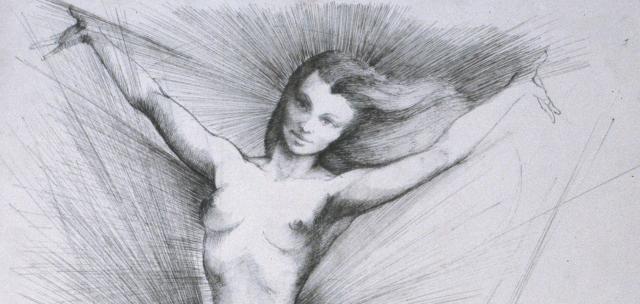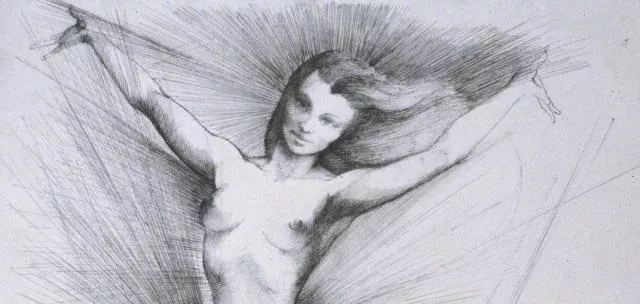
How to Heal Your Vulvodynia

MTV's True Life episode "I Can't Have Sex" about women suffering from vulvodynia, PFD, and vaginismus inspired me to read the curetogether.org ebook Vulvodynia Heroes Alexandra Carmichael sent me months ago.
There are so many wrinkles to "vulvodynia" and not one clear cause or treatment. What I love about this ebook is that it's made up of first person accounts from women who've healed themselves. Somewhere it their stories you may find your own cure. Here's my interview with Alexandra:
What is curetogether.org? Who started the site?
I started the site with my husband in 2008, and I recently told the whole story here.
What is vulvodynia? How do you contract vulvodynia?
Vulvodynia is chronic vulvar discomfort or pain, characterized by burning, stinging, irritation or rawness. It's a poorly understood condition, and there seem to be multiple causes - birth control pills being one possibility in my case.
Is it true that 16% of women will suffer from some sort of vulvodynia "episode" in their lives?
Yes, according to the National Institute of Health - http://orwh.od.nih.gov/health/final_vulvodynia_report.pdf
You started curetogether with user-generated information and communities on vulvodynia, endometriosis and migraines. Do these conditions affect women more than men? Are there adequate medical treatments for these conditions?
Yes, and in fact 2/3 of the members on CureTogether are women. Vulvodynia and endometriosis are female conditions, and migraines affect women 3 times more than men. The research for these conditions is underfunded, diagnosis and treatment are not well defined, and millions of people are suffering in silence every day. So having been through it myself, I wanted to do something to help others like me.
What is remarkable about this disease is that it affects so many women differently. Treatments ranged from diet and exercise to medications and surgery. Why isn't there one tried and true way to treat vulvodynia?
Great question! First of all, there seem to be different types of vulvodynia, which is really just a blanket term for unexplained vulvar pain. For some women, the pain varies with their cycles, while for others, it is constant. Some experience pain only on contact, while some have pain even with no contact. Some women have itching, or burning, or stabbing sensations.
So I think the main reason there isn't one way to treat vulvodynia is that it's really not one condition - as we learn more about it, we will discover subtypes of it that are best treated with different approaches. Until then, it's very much trial and error for each woman.
This summer we also published an infographic showing the most popular and effective treatments for vulvodynia from our latest CureTogether data - http://curetogether.com/blog/2010/06/23/7-surprisingly-simple-treatments...
Women talked about "Revive" and doing relationship building exercises. Why is this important?
Vulvodynia is really a condition that affects both partners. For the first 5 or 6 years that I was with my partner, it was excruciating to even try putting a pinky finger or a tampon into my vagina, and attempting intercourse felt like a knife slicing me open. It can be confusing and frustrating for partners who don't understand what's happening, not to mention stressful for the women experiencing pain, and can strain the relationship. So a lot of open sharing, talking, and relationship-building exercises can be very helpful to keep a strong bond in the midst of the challenge of vulvodynia.
You list the symptoms and treatments that were the most popular. Why is not wearing underwear followed by antidepressants the most common treatments today?
The list of treatments was totally generated by more than 1000 women with vulvodynia who somehow found CureTogether - they added the treatments they tried and rated treatments others had tried, and those were the treatments that came out on top. More recently, ice and physical therapy have taken over the top two slots - http://curetogether.com/vulvodynia/treatments/
Can kegel exercises aggravate vulvodynia? What's the difference between kegels and pelvic floor drops?
I'm sorry, I don't know the answers to those questions.
For some women pregnancy helped their symptoms - for others their symptoms started after giving birth. Why is this true?
I think this has to do again with the different sub-types of vulvodynia - if it's hormonally-related, then the extra hormones circulating around the body can reduce the pain dramatically. But the hormone drop post-partum can bring about a lot more pain.
Why can oxalate foods aggravate vulvodynia?
Again, this only seems to help some people with vulvodynia, and I don't believe the mechanism is very well understood. The theory is that if you have high oxalate levels in your urine, this can cause irritation of the vulvar tissue. There is a low-oxalate cookbook published by the Vulvar Pain Foundation -
What are the most common causes of pain for women with this disease?
The most common reported causes at CureTogether (http://curetogether.com/vulvodynia/causes/) seem to be related to physical contact, hormonal cycles, or infections, and stress is reported to make it worse.
Why do you think 51% of women with vulvodynia also suffer from another condition?
Another great question! I don't know for sure, but my guess is that people who are predisposed to vulvodynia are somehow wired for susceptibility to pain or other chronic conditions. The female body is more complex than the male body, given our ability to bear children, so more things can possibly go wrong, and do. So if a high-level body process is triggered to attack itself, in an auto-immune kind of way, this can have multiple downstream effects. That's just one thought - as more research is done, clearer answers will be found.
What inspired you to have real women share their experiences with vulvodynia?
When I was going through my 10 years with vulvodynia, I didn't know a single other person who had that I could talk to. So when I did find other women going through the same thing, I wanted to hear their stories, and I thought it would help others to hear them too.
Why do you think it's better to link to resources, blogs, support groups recommended by real women?
Real women are the experts on their own bodies. They live with their pain every day, they've tried everything under the sun and know what works and what doesn't. They have such a wealth of knowledge that has no place to be shared. When I went to my doctor's office, there was no way for me to talk to the other patients - now I can!
Your ebook is amazing - what inspired you to take on vulvodynia, a disease that has no cure?
I was inspired by my own journey, and a desire to help other women find possible answers much faster than I did. And I wanted to help raise awareness so that one day there may be a cure.
Can women heal themselves?
I don't know if all women can heal themselves, but I did, with the help of my naturopath, after 10 years of searching. We can try everything we can to heal the physical pain, and if nothing works and we have to accept it, then we can turn to healing the psychological pain. Doctors definitely have an important role to play, and patients have an enormous amount of information to share with each other as well. Every day that I'm not in pain, I'm working hard to help empower other people who are.
CureTogether also just won the Amgen/Ashoka Changemakers' Patient Empowerment Competition, so it's great to see that other people are seeing the possibility in patients sharing data too.
THANK you so much for your questions and your interest, and for your courageous and inspiring work on sexual health. I'm off to watch some more of your videos now!!
Be well.
